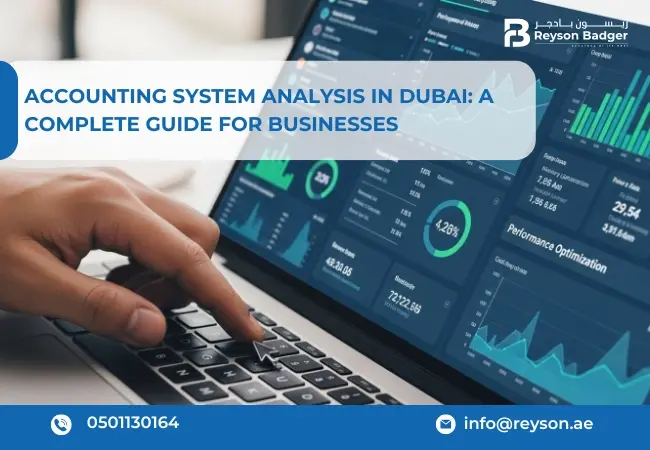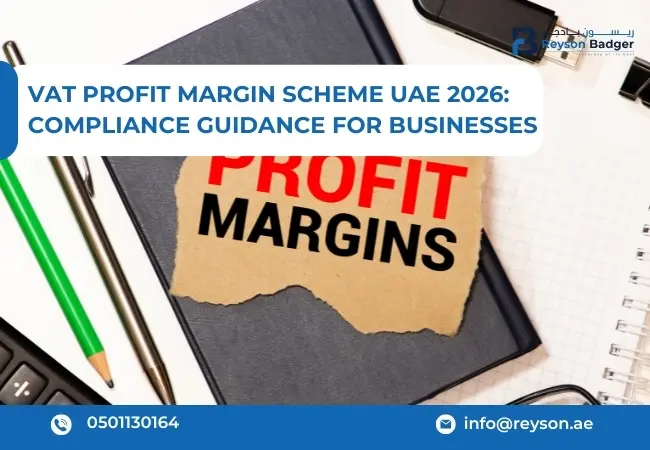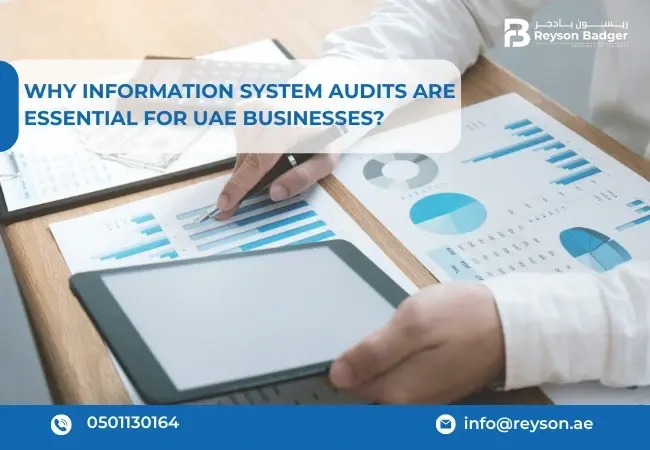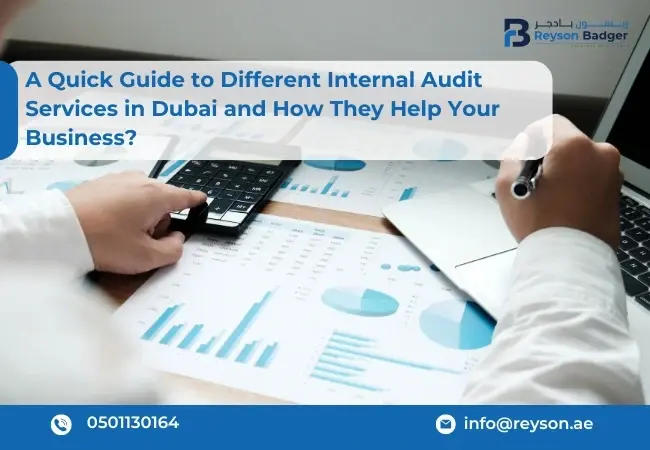Internal Audit for UAE Real Estate and Construction Companies
27-Jan-2026
Manufacturing Industry Audit Services
Specialised audits to manage production costs, inventory, and operational risks.
Auditors for Manufacturing Industries
The manufacturing sector in the UAE is a large part of the country's vision of growing its economy beyond oil. In the last couple of years, the UAE has grown to become one of the global manufacturing hubs, covering all sorts of industries from automotive and food production to electronics and many more. With such an expanding sector, proper auditing becomes quite an important affair. Auditing in manufacturing helps ensure that businesses remain compliant, function smoothly, and maintain good financial records.
Auditing in Manufacturing
Auditing in manufacturing includes, but is not limited to, financial records; it covers a broad area of operations that become highly relevant for the success of any company. A manufacturing audit refers to a detailed review of the manufacturing process verify several key areas for their accuracy, effectiveness, and compliance with laid-down laws and regulations. Auditing in these areas, therefore, helps manufacturing companies achieve process improvements aimed at cost reduction with sustained profitability. Discussed below are four areas auditors direct their focus in the manufacturing industry:
Inventory Management and Valuation
This means that effective inventory management is a very important feature in manufacturing. The auditors review the controls over inventories for the purpose of validating the accuracy of raw materials, work-in-progress, and finished goods. Proper valuation of inventory helps a company avoid overstocking or understocking, minimises carrying costs, and avoids improper financial reporting. Obsolete or excess inventory has to be identified since it reflects profitability.
Cost Accounting and Overhead Allocation
Manufacturing also includes complex cost structures, which comprise direct labour, raw materials, and overhead expenses. Auditors review the company's cost accounting practices for assurance that product cost is appropriately determined and that overheads are equitably allocated among products. This will also ensure the correct pricing of the products, hence improving financial management and analysis of profitability.
Supply Chain and Procurement Audits
The efficiency of supply chain and procurement processes directly impinges on the operations and costs of any manufacturer. Auditors review vendor contracts, purchasing policies, and supply chain management practices for transparency, cost efficiency, and compliance. These audits help identify areas of inefficiency, possible risks, and opportunities for cost savings.
Production Efficiency and Waste Management
Auditors review production-related controls and evaluate whether processes align with documented procedures and standards. They have to review production schedules, equipment use, and waste management systems. Bottlenecks are identified and suggestions are made for ways to improve productivity with minimal waste. Efficient production and waste management not only reduce costs but also help the company achieve its sustainability goals, an increasingly important goal in today's marketplace.
What is an Internal Audit in a Manufacturing Industry?
A manufacturing audit refers to a detailed review of the manufacturing process to establish if such a process is performed. Audit in Dubai can help business owners reinforce their internal controls because of various kinds of risks. The internal auditing process is roughly similar for all types of businesses, and it becomes imperative to give more priority to the additional procedures. Inventory observation, price testing, and control testing are a few of the procedures you have to know about. It will help you prepare for the audit.
Role of Auditors in Manufacturing
Auditors help manufacturing companies stay on track by ascertaining that all operations are within the legal ambit of the sector while addressing financial integrity and minimising risks. The involvement of auditors is, thus, necessary for smooth operation, without any penalty, for the protection of the company's long-term growth. Below, we have discussed some of the key responsibilities of manufacturing auditors, pinpointing their more prevalent roles
- Ensuring Compliance with Regulations and Standards
This means auditors ensure that a manufacturing concern complies with all regulations concerning manufacturing, such as health and safety or environmental guidelines. The major reason for this is to avoid them gaining some legal penalties that may ban them from operating or even withdrawing their licenses. Auditors help manufacturing entities move with the changing regulations to meet standards both nationally and internationally.
- Evaluating the Sincerity and Equivalence of the Financial Statements
Manufacturing concerns need to maintain financial accuracy since large-scale investments and complex supplies are involved. The auditors go through the financial statements, checking for inconsistencies in the financial books to ensure that they represent the correct financial data of the company. This instils confidence in various stakeholders, investors, and regulatory bodies, assisting in preventing any financial discrepancies or fraud.
- Risk Management and Internal Controls
Manufacturing firms are prone to risks, ranging from a disruption in the supply chain to malfunctioning equipment. Auditors assist in highlighting those risks and also assess the effectiveness of internal controls. Auditors allow firms to put in place more effective ways of managing those risks, thereby guaranteeing smooth operations and a strong bottom line.
Audit Procedure in UAE for Manufacturing Industries
The critical steps involved in auditing a manufacturing company establish whether there is appropriate inventory management as well as accurate financial reporting. In the UAE, an audit in a manufacturing company may be seen as a way of ensuring that relevant regulations are complied with as well as reductions in fraud and enhancements in operational efficiency. A summary of some of the key audit procedures auditors in the UAE might use for manufacturing firms will look like the following.
1. Inventory Observation
Inventory observation is among the standard audit procedures being performed in the UAE. Auditors assess the different procedures the company uses to count its inventory and perform an independent test in the preliminary stages of the audit. This procedure is necessary as fraud regarding accounting may be prevented, and this includes falsifications in the records of inventories. Auditors in Dubai commonly use two techniques: floor-to-sheet and sheet-to-floor. The floor-to-sheet involves the selection of items from the warehouse and checking them against the inventory records. Sheet-to-floor involves the selection of an item from the inventory records and then its physical existence at the warehouse. The two methods ensure precision in the reporting of inventories for the company and actual physical presentation.
2. Price Testing
Upon confirmation of quantity, auditors in the UAE begin price testing, which ensures that inventory is recorded at the correct cost on financial statements and in accordance with generally accepted accounting standards. The auditors verify the cost of materials, labour, and overhead against the original documents such as invoices and time cards. This is to make certain that inventories have been carried at the lower cost or market, according to the requirements set forth by the accounting standards. Top audit firms in Dubai prepare business companies for price testing in order for them to ensure their recorded inventory cost is correct.
3. Reserve Inventory
Manufacturing companies, more so those that deal in perishable goods, risk the possibility of inventory obsolescence or spoilage. In such a case, the audit teams in UAE perform the inventory reserve test to ensure the carrying value of the inventory has been correctly reflected on financial statements. During internal controls testing, auditors check the risk associated with the goods going out of date or being spoiled. For instance, food manufacturers, in which spoiled goods may have been noted at the time of inventory observation, could very well prompt the auditors to do aggressive reserve testing. The top audit firms in Dubai assist the manufacturers in this regard so that audits of the inventory are done without any stress.
4. Analyze Results
Auditors begin the evaluation process once all work regarding inventory testing has been done. The auditors go through all the data to check for inconsistencies and losses. The finalised audit report prepared by auditors is then presented to the management of the company. This report includes all the abnormalities tracked down during the audit, if any, showing recommendations on how to improve financial management. With the best UAE audit firms, manufacturers are guaranteed to remain compliant with regulations, reduce financial risks, and smoothen general operational efficiencies.
Regulatory Framework in the UAE
- The UAE has established a broad array of regulations for the manufacturing industry, relating to environmental sustainability and product safety through to worker health and quality control.
- Federal authorities responsible for the implementation of these regulations include the UAE Ministry of Industry and Advanced Technology (MoIAT).
- Manufacturers will need to pay attention to the specific requirements of each emirate that will ensure smooth operations and eliminate potential legal issues.
- Most UAE manufacturing companies adhere to international standards of quality management, such as ISO 9001, environmental management, such as ISO 14001, and health and safety, such as ISO 45001. Conformity with such standards increases operational efficiency and competitiveness at international levels, therefore acting as a catalyst in increasing credibility in the global marketplace.
Regulatory Bodies and Their Roles
- Ministry of Industry and Advanced Technology (MoIAT): sets industrial-level standards and promotes advanced technology in manufacturing.
- Emirates Authority for Standardization and Metrology: ESMA is responsible for developing and implementing the country's standards for products in terms of quality and safety.
- Dubai Municipality and Abu Dhabi Quality and Conformity Council: QCC implements the legislation on their organisations and monitors the compliance of companies with environmental, health, and safety legislations.
Conclusion
With the complication that inventories involve in their management, cost accounting, and production processes, the need to partner with people who understand these peculiar problems of manufacturing industries becomes highly important. Reyson Badger is one of the leading audit firms in the UAE that provides comprehensive audit services tailored to the manufacturing industry. Their company makes sure to see to it that the local regulations and international standards are attained while guiding one through the process of managing the financial administration and operational processes of the business concerned. With Reyson Badger, manufacturers are assured that their audits are comprehensive and accurate, crafted with their vision in support of long-term enterprise growth and success.
Latest Blogs

Accounting System Analysis in Dubai: A Complete Guide for Businesses
Accounting System Analysis Services in Dubai and UAE, businesses gain clarity, control, and confidence in their financial operations turning accounting systems.
READ MORE →
Information System Audit for SMEs: What You Need to Know
Information System audits help UAE SMEs protect data, stay compliant, and strengthen operations for secure, sustainable business growth.
READ MORE →
Mandatory Audit Requirements for UAE Mainland Companies
Mandatory audits are required for UAE mainland companies to maintain compliance, ensure transparency, and support sound financial reporting.
READ MORE →
VAT Profit Margin Scheme UAE 2026: Compliance Guidance for Businesses
The VAT Profit Margin Scheme in UAE 2026 allows eligible businesses to calculate VAT on profit margins instead of full selling prices, ensuring simplified compliance and reduced tax burden.
READ MORE →
Business License Issuance and Renewal Services: What You Need to Know?
A practical guide to business license issuance and renewal in the UAE, including steps, timelines, and key requirements.
READ MORE →
Top Mistakes Tourists Make While Claiming VAT Refund in Saudi Arabia
Tourists often lose their VAT Refund in Saudi Arabia due to small mistakes. Discover common errors and tips to claim your refund successfully.
READ MORE →
UAE VAT Compliance Calendar: Key Deadlines and Filing Dates
A complete UAE VAT compliance calendar highlighting key VAT filing deadlines, return due dates, and important timelines to help businesses avoid penalties.
READ MORE →
VAT Assessment and Compliance Services in UAE: Key Risks, Obligations, and Best Practices
This blog explains VAT assessment and compliance services in the UAE, covering regulatory obligations, common compliance risks, and best practices businesses must follow. Learn how proper VAT reviews, accurate filings, and transaction assessments help avoid penalties and ensure alignment with Federal Tax Authority (FTA) requirements.
READ MORE →
How VAT Refund Schemes in Saudi Arabia Compare with UAE & Other GCC Countries?
Explore how VAT refund schemes in Saudi Arabia differ from the UAE and other GCC countries. This blog compares eligibility, processes, timelines, and compliance requirements, helping businesses and tourists understand key refund opportunities and regional VAT recovery strategies.
READ MORE →
Accounts Outsourcing Services in Dubai: What Every Business Owner Should Know
Accounts Outsourcing Services in Dubai cover essential finance functions through a structured and professional workflow, compliant, and financially organized.
READ MORE → The Federal Tax Authority (FTA) has announced that businesses must complete Corporate Tax registration within 90 days from the Date of Incorporation / MOA.
The Federal Tax Authority (FTA) has announced that businesses must complete Corporate Tax registration within 90 days from the Date of Incorporation / MOA.




